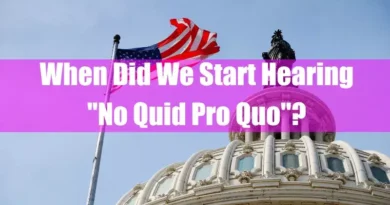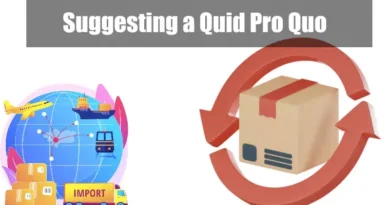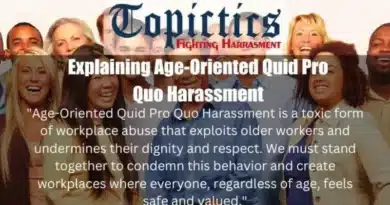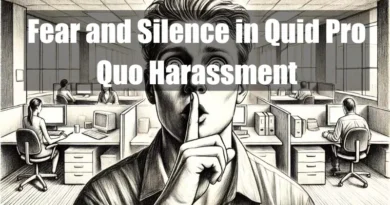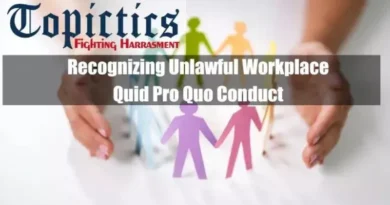Tangled Web of Bribery and Quid Pro Quo
Bribery and quid pro quo arrangements are forms of corruption that can significantly impact societies worldwide. These two practices are often intertwined and can contribute to unethical behavior in the political, business, and public sectors.
In recent years, the rise in high-profile corruption cases has brought renewed attention to how bribery and quid pro quo influence decision-making processes and undermine public trust.
Understanding the complex dynamics between these two practices is essential for recognizing their implications and devising strategies to mitigate their impact.
Takeaways
| Key Points |
|---|
| Bribery involves offering, giving, receiving, or soliciting something of value to influence an individual in a position of power, often manifesting as cash, gifts, or favors to secure unfair advantages, bypass regulations, or gain power. |
| Quid pro quo, meaning “something for something,” is an explicit or implicit exchange where one party provides a benefit expecting something in return, and while it may be legal in certain contexts, it becomes problematic when involving unethical or illegal actions. |
| Bribery and quid pro quo appear in political, corporate, and public sectors, with political bribery skewing democratic processes, business bribery reducing competition and innovation, and public sector bribery eroding trust in government institutions. |
| These practices are sustained by facilitation networks of intermediaries who obscure transactions through laundering and other covert methods. |
| Their consequences are severe, including economic inefficiencies, social inequality, political instability, and undermined public trust, as highlighted by tools like the Corruption Perceptions Index and the Worldwide Governance Indicators. |
Defining Bribery and Quid Pro Quo
Bribery, at its core, involves the offering, giving, receiving, or soliciting something of value to influence an individual’s actions in a position of power. This practice is illegal in many jurisdictions and universally considered unethical. Bribery can take many forms, including cash payments, gifts, favors, or other benefits that are provided in exchange for preferential treatment or the alteration of a decision.
Quid pro quo, a Latin term meaning “something for something,” is a concept closely related to bribery but distinct in its mechanism. In a quid pro quo arrangement, there is an explicit or implicit exchange where one party provides a benefit or favor with the expectation of receiving something in return. Unlike bribery, which is generally understood to involve illegal or unethical transactions, quid pro quo can occur in both legal and illegal contexts, depending on the nature of the exchange and the parties’ intent.
Unveiling the Mechanisms
A. Motives: The Engine Driving the Connection
Bribery and quid pro quo are often motivated by a desire for power, influence, and financial gain. Individuals and organizations use these practices to secure advantages they might not otherwise obtain through legitimate means.
Sometimes, the motivation is to bypass regulatory obstacles, expedite processes, or gain a competitive edge in the marketplace. In others, it is to maintain or enhance one’s position within a power structure, whether in politics, business, or the public sector.

B. Contexts: Where the Exchange Takes Shape
Bribery and quid pro quo arrangements can manifest in various contexts, each with its own actors, mechanisms, and outcomes. Understanding these contexts is key to recognizing the broader implications of these practices.
Political Bribery:
Political bribery is perhaps the most visible and damaging form of corruption. It occurs when individuals or organizations offer financial incentives or other benefits to politicians, government officials, or political parties in exchange for favorable policies, legislation, or regulatory decisions.
This type of bribery undermines democratic processes, allowing wealth and power to dictate public policy, often at the expense of the greater good. Recent high-profile cases have highlighted how political bribery can distort elections, skew policy decisions, and erode public trust in government institutions.
Business Bribery:
In the corporate world, bribery often takes the form of kickbacks, where companies or individuals offer payments or other incentives to secure contracts, favorable terms, or business advantages. Business bribery can have ripple effects, increasing costs, reducing competition, and compromising product or service quality.
It also creates an uneven playing field, where businesses that refuse to engage in bribery are disadvantaged, potentially stifling innovation and growth. Recent reports indicate that business bribery is particularly prevalent in industries with high levels of regulation, such as construction, pharmaceuticals, and energy.
Public Sector Bribery:
Bribery in the public sector involves exchanging money, gifts, or favors between private individuals or businesses and public officials. This type of bribery can lead to misallocating resources, awarding contracts to unqualified entities, and prioritizing personal or political interests over public welfare.
Public sector bribery is particularly damaging because it erodes trust in government institutions and can have long-lasting effects on public services and infrastructure. Public sector bribery has been reported across various regions, highlighting the need for robust anti-corruption measures and greater transparency.
C. Facilitation Networks: The Oiled Wheels of Corruption
Facilitation networks enable and sustain bribery and quid pro quo arrangements. These networks consist of intermediaries, brokers, and facilitators who connect the parties involved, help orchestrate the exchanges, and ensure that the transactions remain hidden.
These actors often operate in the shadows, using their connections and expertise to navigate legal loopholes, evade detection, and maintain the flow of illicit payments or favors. Recent investigations have shed light on how these networks function, revealing the sophisticated methods used to launder money, disguise transactions, and cover up the tracks of those involved.
Consequences of the Bribery-Quid Pro Quo Nexus
A. Economic Costs
The economic costs of bribery and quid pro quo are substantial and far-reaching. These practices distort market competition, leading to inefficiencies, increased costs, and reduced innovation. Businesses that engage in bribery may secure contracts or licenses that they are not qualified for, resulting in subpar products or services.
This can have a ripple effect throughout the economy, as consumers and taxpayers ultimately bear the burden of these inefficiencies. Furthermore, bribery can discourage foreign investment, as investors may be wary of entering markets where corruption prevails.
The overall impact is a drag on economic growth and development.
B. Social Costs
The social costs of bribery and quid pro quo are equally significant. These practices undermine the rule of law, erode trust in institutions, and perpetuate inequality. When individuals and organizations can buy influence or secure favorable treatment through bribery, the general public feels injustice and disillusionment.
This can lead to social unrest as citizens lose faith in the system’s fairness and become disillusioned with their leaders. Additionally, bribery often disproportionately affects marginalized communities, who may be excluded from opportunities or resources because they lack the means to engage in these corrupt practices.
C. Political Costs
The political costs of bribery and quid pro quo are profound. These practices can distort democratic processes, allowing wealth and power to influence political outcomes. This undermines the legitimacy of governments and can lead to political instability as citizens lose confidence in their leaders and institutions.
In extreme cases, widespread bribery can lead to the collapse of governments or the rise of authoritarian regimes as citizens become disillusioned with democratic processes and seek alternatives. The political costs of bribery are particularly high in developing countries, where weak institutions and limited oversight make it easier for corruption to take root.
D. Measuring the Impact
Measuring the impact of bribery and quid pro quo is challenging, as these practices are often hidden from public view and difficult to quantify. However, various indicators can provide insight into the extent and impact of corruption, including Transparency International’s Corruption Perceptions Index (CPI), which ranks countries based on their perceived levels of corruption.
Other indicators include the World Bank’s Worldwide Governance Indicators (WGI), which assess the quality of governance and the extent of corruption in different countries. These measures can help highlight the problem’s scale and track progress in combating corruption.
Strategies and Solutions to Break the Chain

A. Legal and Regulatory Frameworks
Establishing and enforcing strong legal and regulatory frameworks is essential for combating bribery and quid pro quo. This includes enacting and enforcing anti-corruption laws, strengthening oversight and accountability mechanisms, and ensuring those who engage in bribery are held accountable.
In recent years, many countries have introduced or strengthened anti-corruption laws, such as the U.S. Foreign Corrupt Practices Act (FCPA) and the U.K. Bribery Act, which have set high standards for combating bribery domestically and internationally. However, enforcement remains a challenge, and there is a need for greater international cooperation to address cross-border corruption.
B. Institutional Reforms and Good Governance
Institutional reforms and promoting good governance are critical for preventing bribery and quid pro quo. This includes improving transparency, accountability, and oversight in both the public and private sectors.
Strengthening institutions, such as anti-corruption agencies, independent judiciary systems, and law enforcement bodies, is essential for creating a culture of integrity and reducing opportunities for corruption.
Recent initiatives, such as the Open Government Partnership (OGP), have promoted transparency and accountability by encouraging governments to adopt open data practices and engage with civil society. These efforts are vital for creating an environment where bribery and quid pro quo are less likely to occur.
C. Societal Initiatives and Cultural Change
Combating bribery and quid pro quo also requires a shift in societal attitudes toward corruption. Public awareness campaigns, education initiatives, and advocacy efforts can help change the cultural norms that enable these practices to thrive.
Civil society organizations play a crucial role in these efforts by raising awareness, advocating for policy changes, and holding governments and businesses accountable. In recent years, there has been a growing movement towards promoting ethical behavior and integrity in both the public and private sectors, with initiatives such as the United Nations Global Compact and the World Economic Forum’s Partnering Against Corruption Initiative (PACI) leading the way.
D. Technological Advancements
Technological advancements offer new opportunities for combating bribery and quid pro quo. Innovations such as blockchain, artificial intelligence, and big data analytics can help to improve transparency, enhance oversight, and detect corrupt practices. For example, blockchain technology can be used to create tamper-proof records of transactions, making it more difficult to hide bribes or engage in quid pro quo arrangements.
Similarly, artificial intelligence and data analytics can analyze behavior patterns and identify instances of potential corruption. These technologies are still in their early stages, but they hold significant potential for transforming the fight against bribery and quid pro quo.
Conclusion: From Quid Pro Quo to Ethical Quo Vadis
The tangled web of bribery and quid pro quo presents a significant challenge for societies worldwide. These practices undermine trust, distort decision-making processes, and have far-reaching consequences for economies, societies, and political systems.
Addressing this challenge requires a multi-faceted approach that includes strong legal and regulatory frameworks, institutional reforms, societal initiatives, and the adoption of new technologies.
By working together to combat bribery and quid pro quo, we can move toward a future where ethical behavior and integrity are the norm and corruption is no longer pervasive in our societies.
FAQ
What constitutes bribery during the job application process?
Bribery in job applications occurs when an applicant offers money, gifts, or services to a hiring manager or recruiter to gain an unfair advantage. This unethical behavior compromises the integrity of the hiring process and can lead to severe legal consequences for both parties involved. For instance, offering cash to a recruiter after a rejection is a clear example of bribery.
How does quid pro quo manifest during the hiring process?
Quid pro quo, meaning “something for something,” in hiring refers to situations where a person in authority offers job benefits, such as a position, promotion, or salary increase, in exchange for sexual favors or other personal gains. This harassment exploits power dynamics and is strictly prohibited under employment laws.
What actions should I take if asked for a bribe during an interview?
If an interviewer solicits a bribe, refusing and reporting the incident is vital. Document the request and contact the company’s human resources department or appropriate authorities. Engaging in bribery can lead to legal repercussions, including fines and imprisonment, and tarnish your professional reputation.
Is offering gifts to interviewers considered bribery?
Providing gifts to interviewers can be perceived as an attempt to influence the hiring decision, especially if the gifts are of significant value. Even small tokens can raise ethical concerns. To maintain professionalism and avoid any appearance of impropriety, it’s important to refrain from offering any gifts during the recruitment process.
How can I identify if a company engages in corrupt hiring practices?
Be vigilant for red flags such as requests for payments to secure interviews, pressure to provide personal favors or indications that hiring decisions are based on personal relationships rather than qualifications. Researching the company’s reputation through employee reviews and industry reports can provide insights into hiring practices.
Are there laws protecting applicants from quid pro quo harassment?
Yes, laws like Title VII of the Civil Rights Act prohibit quid pro quo harassment during hiring. Employers are legally barred from conditioning employment opportunities on the acceptance of unwelcome sexual advances or requests. Victims of such harassment have the right to file complaints with the Equal Employment Opportunity Commission (EEOC) or pursue legal action.
What are the consequences of engaging in bribery to secure a job?
Engaging in bribery can lead to immediate termination, legal penalties such as fines or imprisonment, and long-term damage to one’s professional reputation. Both the individual offering the bribe and the recipient can face serious legal and career repercussions. Additionally, such actions can result in the revocation of professional licenses and exclusion from industry associations.
How can companies prevent bribery in their hiring processes?
Companies can implement strict anti-bribery policies, conduct regular employee ethics training, and establish clear reporting mechanisms for unethical behavior. Regular audits and fostering a culture of transparency and accountability are essential to prevent bribery. Utilizing third-party background checks and maintaining a whistleblower protection program can also deter corrupt practices.
What steps should I take if I suspect a colleague secured their position through bribery?
If you suspect a colleague obtained their position through bribery, it’s important to report your concerns to your company’s HR department or use established whistleblowing channels. Provide any evidence or observations that support your suspicions. Companies are obligated to investigate such claims and protect whistleblowers from retaliation.
How does quid pro quo differ from networking in job searches?
Networking involves building professional relationships and leveraging connections ethically to discover job opportunities. In contrast, quid pro quo entails expecting or offering something in return for a job opportunity, which is unethical and often illegal. While networking is based on mutual professional respect, quid pro quo exploits power imbalances for personal gain.





